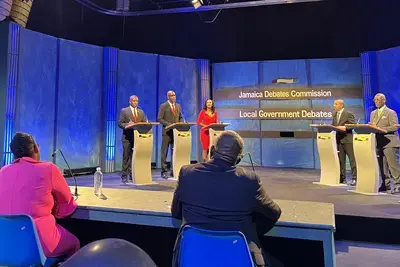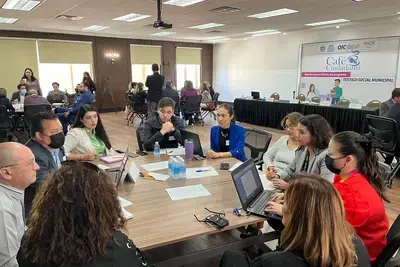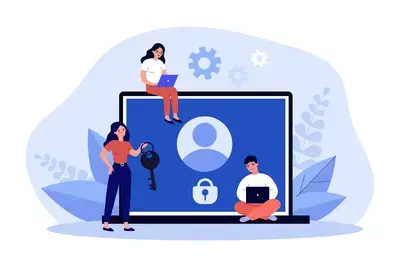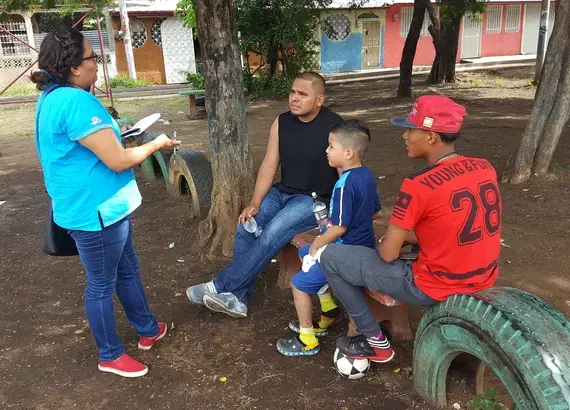
A youth organizer surveys members of the community about the most pressing issues affecting their neighborhood.
Success Story
Youth in Nicaragua Turn Organizing Skills Into Improvements for Their Communities
Nicaragua’s democratic institutions have eroded substantially over the past decade, to the degree that many Nicaraguan youth do not see viable options for making change in their communities or country through politics. Through grassroots organizing, a group of Nicaraguan youth have found ways to exercise their right to hold elected officials accountable and to secure action to bring about improvements in their communities.
The Civic Youth Movement (MCJ; Movimiento Cívico de Juventudes) has been part of an NDI effort that began in 2015 to expand youth leadership and political engagement by providing hands-on training in community organizing techniques. Several of the group members are graduates of the Certificate in Leadership and Political Management (CLPM) program NDI has supported in partnership with Nicaraguan universities and civil society organizations, together with George Washington University. In one of Managua’s sprawling poor neighborhoods, these youth organizers are utilizing the community organizing training that NDI has provided to carry out campaigns to improve their community.
Using proven community organizing methodologies, the group put together a team to carry out a total of 174 door-to-door interviews. Through this process, they realized the main concern in the community was increasing crime and insecurity. This problem, they felt, was exacerbated by the lack of public lighting in a major local park and surrounding streets.
The young organizers created a neighborhood committee to tackle the issue. The committee designed and implemented a campaign called “For a Safe Community" ("Por una Comunidad Segura”). The campaign included a signature drive and direct lobbying of the city council, aimed at garnering community support and getting municipal authorities to take action.
The organizers drafted a petition and collected 188 signatures asking the mayor to install streetlights in the dark areas of the neighborhood. At the same time, the committee held meetings with city council members who became allies of the campaign. In the following weeks, the group presented their concerns and the proposed solution in an open town hall meeting. The mayor promised to address this situation and, two weeks later, installed 25 streetlights in the most insecure areas of the neighborhood, ensuring safer conditions for the area’s more than 3,000 inhabitants.
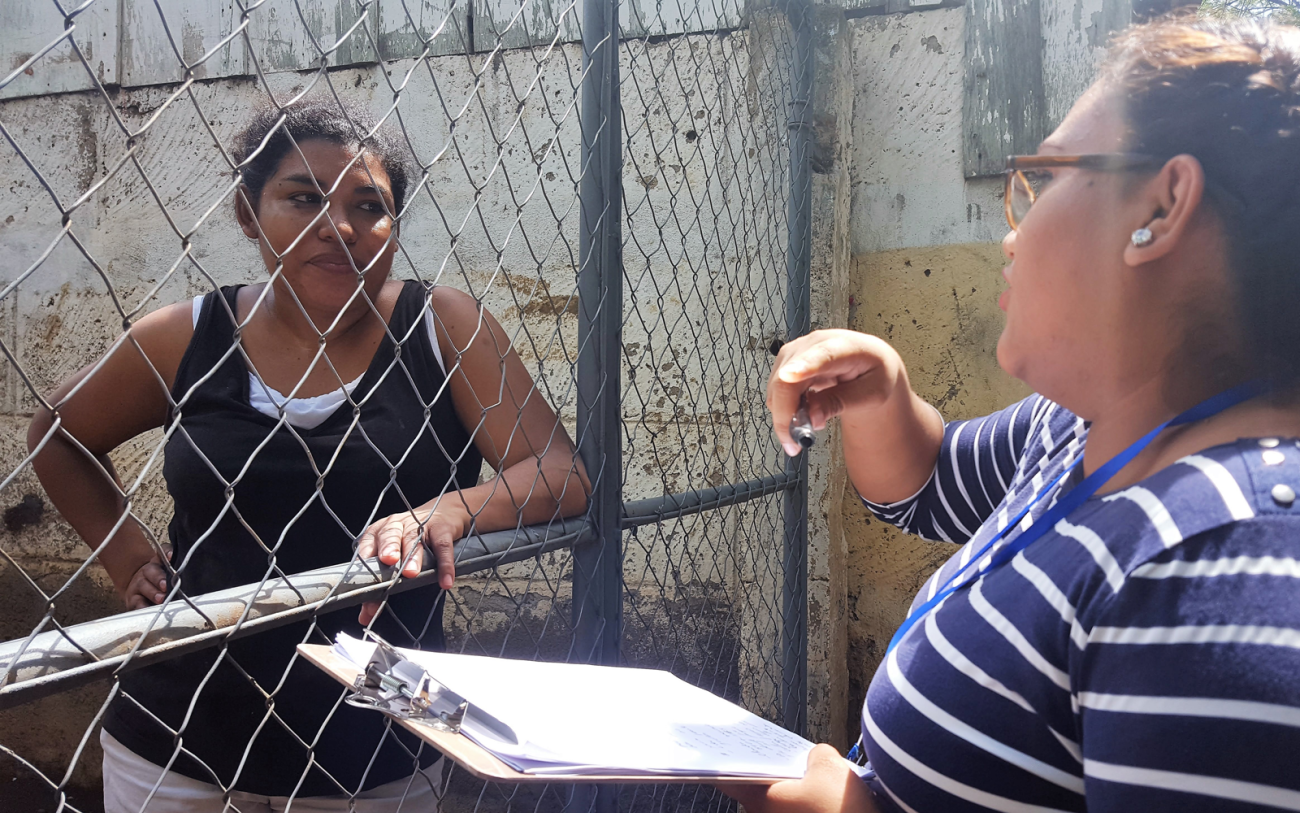
A youth organizer collects signatures for a petition asking the mayor to install streetlights in the neighborhood.
Small-scale, youth-led “wins” at the community level are not typical in Nicaragua. However, youth organizers see the potential in engaging with members of their own community to build support for a solution to a community issue, and to take the next step, and pursue action with public officials. Elvin Mena, a member of MCJ notes in a video the group created about their experience, “Through community organizing we were able to secure the installation of the lights, which will lower the level of violence in the community.”
Through community organizing we were able to secure the installation of the lights, which will lower the level of violence in the community.
Elvin Mena, a member of Civic Youth Movement
The first “win” of the neighborhood committee led to another initiative. This time, they set out to run a grassroots campaign to solve an environmental issue affecting the communities’ health: the incineration of the community hospital’s hazardous waste. This second campaign garnered even more support from the community. With more than 200 signatures, a commission of eight neighbors met with the head of the mayor's Environment Commission and a representative of the Ministry of Health. The meeting resulted in a signed agreement committing the hospital to suspend incineration of solid and toxic waste, and to adapt the hospital’s incinerator to protect the environment and community members from the emission of toxic gases.
Next, the group will organize a city-wide campaign, building on the experience they gained in their neighborhood campaigns. They are in the process of interviewing individuals, groups, and institutional leaders across the entire city of 110,000 people. As they conduct their interviews, they are also providing training to new groups with the support of local NDI staff. This process demonstrates how building experience and support at a neighborhood level can be leveraged to impact change at higher levels of government and impact the lives of significantly more people.
These campaigns and their early “wins” are evidence that grassroots organizing can work to empower citizens and improve their lives even in places where conditions for free and fair elections do not exist.
These campaigns and their early “wins” are evidence that grassroots organizing can work to empower citizens and improve their lives even in places where conditions for free and fair elections do not exist.
For many of the youth organizers, it was the first time they had participated in awareness efforts for community issues. Given Nicaragua’s challenging political context, their success challenges the pervasive mindset that ordinary citizens cannot make change.
